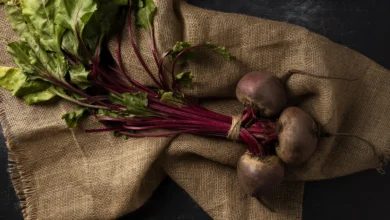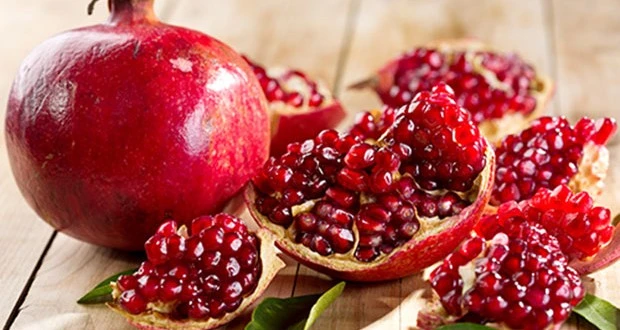Natural Compresses to Relieve Muscle Pain
Muscle pain is something everyone experiences at some point — whether it’s from exercise, stress, long hours of work, or even just sleeping in a wrong position. While over-the-counter medications can help, natural compresses offer a simple, effective, and gentle way to ease soreness and support recovery right at home. Using basic ingredients and easy methods, you can reduce inflammation, relax muscles, and feel relief without relying heavily on synthetic products.
Why Compresses Help Muscle Pain
Compresses work by applying temperature therapy and therapeutic herbs directly to the affected area. Heat helps relax tight muscles and improve blood flow, while cold can reduce swelling and numb sharp pain. When combined with natural ingredients like herbs and essential oils, the healing effect becomes even more powerful.
Choosing between a hot or cold compress depends on the type of pain:
- Heat compress: Best for muscle stiffness, tension, or chronic soreness
- Cold compress: Best for acute injuries, swelling, or sharp pain
Now, let’s dive into some easy homemade compresses you can try.
1. Warm Herbal Compress for Relaxation
A warm herbal compress is perfect for easing muscle tension and promoting relaxation.
You’ll need:
- A clean cloth or small towel
- Dried herbs like lavender, chamomile, or rosemary
- A microwave or pot of hot water
Instructions:
- Fill the cloth with dried herbs and tie it securely
- Warm it in the microwave for about 30 seconds, or steam it above boiling water
- Apply gently to the sore area for 15–20 minutes
The combination of heat and calming herbal scents helps relax both muscles and mind.
2. Cold Compress with Aloe Vera
For recent injuries or swelling, a cold compress combined with aloe vera can reduce inflammation and soothe the skin.
You’ll need:
- Aloe vera gel (fresh or store-bought)
- A clean cloth
- Ice cubes or a frozen gel pack
Instructions:
- Spread aloe vera gel over the cloth
- Place ice inside and wrap it up
- Apply gently to the sore or swollen area for 10–15 minutes
Aloe vera adds a cooling, anti-inflammatory boost to the cold therapy.
3. Epsom Salt Hot Compress
Epsom salt is rich in magnesium, which can help relax muscles and reduce pain.
You’ll need:
- 1 cup of Epsom salt
- Hot water
- A clean cloth or small towel
Instructions:
- Dissolve Epsom salt in a bowl of hot water
- Soak the cloth in the solution and wring out excess water
- Apply the warm cloth to the sore muscle
- Repeat as needed, reheating the cloth if it cools down
This method is especially helpful for back pain, leg cramps, and post-workout soreness.
4. Ginger Compress for Deep Muscle Relief
Ginger has natural anti-inflammatory and warming properties, making it ideal for deep muscle pain.
You’ll need:
- Fresh ginger root
- Water
- A clean cloth
Instructions:
- Slice fresh ginger and simmer it in water for 10–15 minutes
- Soak the cloth in the ginger water, wring it out, and apply it warm to the affected area
- Leave it on for 15–20 minutes
This type of compress is great for stiff joints and lingering aches.
5. Peppermint Oil Cool Compress
Peppermint oil has a cooling effect that can help with muscle spasms and pain.
You’ll need:
- A few drops of peppermint essential oil
- Cold water
- A clean cloth
Instructions:
- Add the peppermint oil to a bowl of cold water
- Soak the cloth in the mixture, wring out lightly, and place it on the painful area
The menthol in peppermint creates a cooling sensation that naturally eases discomfort.
Tips for Using Natural Compresses Safely
- Always check the temperature before applying a compress to your skin to avoid burns or irritation
- Limit application to 15–20 minutes at a time
- Place a thin layer of cloth between the compress and your skin if needed
- Stay hydrated, especially if you are treating muscle pain related to dehydration or cramping
If you’re unsure whether heat or cold is appropriate for your specific injury, a good rule is: use cold first for new injuries and heat later for chronic aches or stiffness.
When to Seek Medical Advice
While natural compresses can work wonders for minor muscle pain, consult a healthcare professional if you experience:
- Severe pain that doesn’t improve
- Persistent swelling or bruising
- Numbness or tingling
- Muscle weakness
In those cases, you might be dealing with a more serious issue that needs professional treatment.
Gentle Healing, Naturally
Natural compresses are an easy, affordable way to care for your body when it’s feeling sore or stressed. Whether you need to relax tight shoulders after a long day or soothe sore legs after a workout, these remedies use the healing power of heat, cold, herbs, and oils to support recovery and bring comfort.
Adding this gentle practice to your self-care routine can help you bounce back quicker and feel more connected to your body’s natural rhythm of healing.

Hello! My name is Alan Teixeira and I am passionate about helping people live healthier, more balanced lives. From mindful eating to daily habits that promote physical and mental well-being, I believe that small, consistent changes can lead to powerful transformations.
I created this blog to share practical tips, reliable information, and thoughtful insights that can inspire you to take better care of yourself—with balance, mindfulness, and positivity.
If you are looking to improve your health, nourish your body, and build a lighter, more fulfilling routine, you are in the right place. Welcome!





